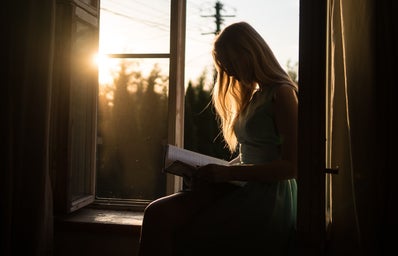Open Water by Caleb Azumah Nelson is a vulnerable, vivid, and tender novel about art, creation, identity, love, and masculinity.
It is primarily set in London and explores a love story between two young, Black artists. The narrator’s connection to himself, family, friends, and community are highlighted to reflect the complexities of identity, relationships, and how numerous things factor into them––particularly systems and institutions.
Open Water intersects class status, race, and sex while weaving elements of art, film, and music to depict experiences in dynamic and raw ways. Identity, experiences, and emotions cannot be understood in compartmentalized ways, so the experience and existence in the world as a Black person, a Black man specifically, is explored through an intersectional lens. The novel captures joy, pain, and everything that exists in between and outside of those experiences, reflecting that multiple truths and emotions can exist at once.
A second person narration style is utilized to create an opening from the emotional repression that is often encouraged and promoted by society. It allows the main character to freely admit and express his thoughts, feelings, and truths. He is able to call himself out and connect his internal feelings with external realities. It is also a way to directly communicate with other people within the community. To be seen in the most authentic way.
Art is transcendental, and there is a liveliness imbued in the descriptions of music, dance, and interactions. Parallels are made between the art references and the narrator’s life. Art is something connected to the self––not a separate creation or idea. It is something that transforms and transcends. It is an expression of the self, community, and a mode for connection.
The art is connected to expression and personhood, so it plays a crucial role in framing and understanding identity. The references aren’t brought up in superficial ways or simply to be included for pop culture’s sake, so it doesn’t take you out of the story in the way that pop culture references sometimes do.
The imagery and sensation of the spaces are enhanced through the art references and prose. Art, people, and the spaces they create and inhabit allow connections to grow. The barbershop is described as one of these sacred, communal spaces:
This is ritual, shrine, ecstatic recital. With every visit, you are declaring that you love yourself. You love yourself enough to take care. And it’s here, in the barbershop, that you can be loud and wrong and right and quiet. It’s here you can lean across to the next man, and state your case, ask for clarification, enquire into which you don’t know. It is here you can laugh, it is here you can be serious. It is here you can breathe. It is here you can be free (p. 112).
The barbershop is a place where the narrator can be seen and exist unselfconsciously.
Open Water is a novel that evokes a full body response. It is brilliantly immersive. Ideas of connection are strengthened through imagery, metaphors, and phrases that resurface throughout the text, serving to remind you of a previous point in a way that is cyclical and free-flowing. I was captivated from the first page.


